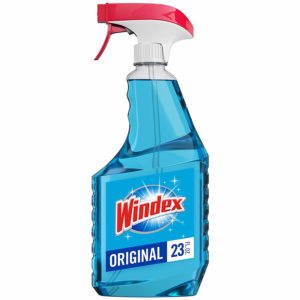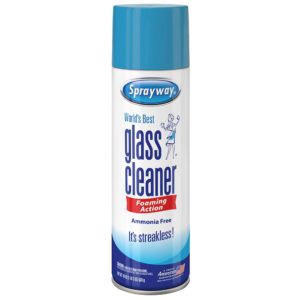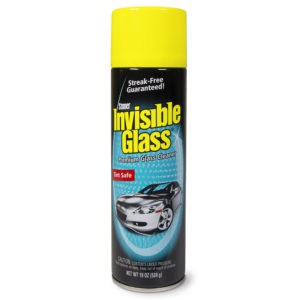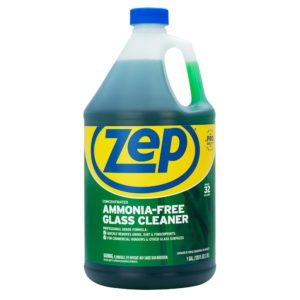Part 3: It’s Just…Windex
Published July 2019
A Guide to Common Products with Uncommon Properties
By: Nick Dryden

Part 3: It’s Just…Windex
This is part 3 of our It’s Just… series on common products we see in industry. In this series we will be focusing on the chemicals found in these products, where you might find them in your facility, and how these products should be handled for disposal. Quick Disposal.
These products are all very common and can be safely used by following the manufacturer’s instructions. However, chemical products can quickly become unusable through improper storage. After products are no longer usable, most are subject to disposal regulations and should not be poured down the drain or thrown in the trash. Improper disposal can pollute the environment, harm wildlife, and/or harm human health.

Glass Cleaner: Where is it Commonly Found?
Windex is the brand name of a glass cleaner found in many homes and custodial closets. It is primarily used to clean glass surfaces like windows and table-tops. Glass cleaners are commonly sold as liquids or as aerosol cans. They can be purchased from most hardware stores, home-improvement stores, grocery stores, or big-box retailers like Wal-Mart and Target.

Glass Cleaner: What’s Makes it Dangerous?
Liquid glass cleaners are typically a solution of ammonium hydroxide or isopropyl alcohol. In commercial applications, these are often sold in a concentrate and are blended with water in a spray bottle prior to use. The concentrated products are often either flammable, corrosive, or both depending on the active ingredients.
Glass cleaners sold in aerosols typically have the same active ingredients, but the ingredients are pressurized in a metal can with a propellant. This propellant may be flammable, toxic, or an ozone depleting substance.

Glass Cleaner: How to Properly Dispose of this Chemical?
Glass cleaning concentrates that are flammable or corrosive are usually regulated as hazardous wastes by the US EPA and as hazardous materials by the US DOT. Almost all aerosols are regulated by both the US EPA and US DOT. Please contact our Hazardous Waste Team to put a safe plan in place for disposal of this chemical or any other chemicals you no longer want.